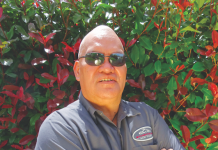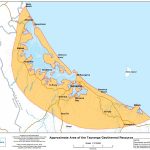The following outcomes are the results from a recent survey of the Western Bay of Plenty District Council election candidates by income equity group Closing the Gap.

Candidates and Responses
Click on the person you would like to hear from:
-
-
- Ben Warren – Katikati Community Board
- Dale Snell – Te Puke Community Board
- David Marshall – Katikati – Waihi Beach Ward
- John Evans – Kaimai Ward
- John Palmer – Kaimai Ward
- Kamal Yadav – Katikati Community Board
- Kassie Ellis – Te Puke Community Board
- Kate Sutherland – Katikati Community Board
- Larissa Hika – Te Puke Community Board
- Margaret Murray-Benge – Mayor, Kaimai Ward
- Mark Dean – Kaimai Ward
- Mike Lally – Maketu – Te Puke Ward
- Monique Lints – Maketu – Te Puke Ward
- Neil Candy – Katikati – Waihi Beach Ward
- Richard Crawford – Te Puke Community Board
- Richard McNair – Te Puke Community Board
- Stephan Simpson – Maketu Community Board
- Steve Fawcett – Mayor, Maketu-Te Puke Ward, Te Puke Community Board
- Suaree Borell – Kaimai Ward
- William Ra Anaru – Maketu Community Board
-
Suaree Borell

Q1 – Inequality
Wealth inequality and income inequality are the two issues of concern although income inequality is
more frequently assessed because it is easier to measure.
What is your view of these inequalities in relation to how the organisation you are a candidate for
might address them?
Both wealth inequality and income inequality are important issues which need to be
addressed by councils
Other Comment:
At the very least we as employers should look to pay a living wage…
Q2 – Public Transport
Subsidising public transport would help address income inequality by providing cheap/zero cost alternative transport and would address wealth inequality by enabling better access to other public services. It would decrease the number of cars on our roads improving transport for all.
If public transport is subsidised, who do you think should benefit?
Free public transport for all the above at the times specified
Other Comment:
with some qualification to this stance – Public transport costs and someone has to pay for
its up keep. We could design better cities and look in to flexi working times to ease
congestion and reduce harm to our transport infrastructure.
Q3 – Living Wage
The living wage (2019) is $21.15/hr and is calculated on a national basis quantifying an hourly wage that a family of four requires to live based on one partner working full time and the other partner working half time. The current minimum wage is $17.70.
How do you think the living wage should be implemented by your council?
Councils should pay their own staff, any CCO (council controlled organisation) staff, and council contractors’ staff at least the Living Wage.
Other Comment:
like yesterday – this needed to happen Yesterday
Q4 – Living Wage
Do you think councils should be proactive in promoting the living wage to other organisations in the community?
Yes
Q5 – Social Housing
Social housing is housing owned by councils and rented to tenants. How much should councils be involved with social housing?
Council should retain ownership of some social housing
Q6 – Community Housing
Community housing is housing provided by the community via whatever mechanisms work for the community and with the object of the housing being owned by the occupiers. The one family, one plot of ground kiwi concept appears to be diminishing and new international trends are emerging in our landscape with community models. How much should councils be involved with community housing initiatives? (Please select any options you think would work in Tauranga and the Bay of Plenty and/or add your own suggestions in the space for Comments)
Provide ongoing financial and/or other tangible support to housing initiatives such as
Housing First
Clear the council land that currently has poor housing standards and enter in partnership
with community to build new housing
Q7 – Rating System
In 1879 Henry George published Progress and Poverty in which he pointed out that, perversely, poverty increased with increasing progress and that the cause of this was the accumulation of unearned wealth based on increasing value of monopoly ownership of land.
His solution was land value tax. What is your position on progressively moving rates which are currently based on capital value to rates based on land value?
I would support a detailed study of how this would be accomplished and the effects it would
have
Q8 – Rating System
Some rating systems (e.g. the Tauranga rating system) include a uniform annual general charge (UAGC) which has the general effect of ratepayers of lower socio-economic status subsidising the unearned wealth accumulation of wealthier ratepayers.
What is your position on phasing out the UAGC where it applies?
I would definitely support this change
Q9 – Wellbeing
Improving standards for children, Maori and Pasifika, Mental Health, infrastructure, and environment are at the heart of Central government’s 2019 Wellbeing Budget.
How can councils support the thrust of Central Government’s budget?
Take a proactive stance by increasing community inclusiveness outside of stipulated areas,
eg: approaching groups for project input relevant to them.
Q10 – Knowledge of Council Staff Salaries
Many people are interested to know the range of salaries and wages paid by council as well as the numbers of employees in the various wages and salary bands. Do you support the regular publication of councils’ wages and salary bands with strict adherence to bandwidth which may identify the income of individual staff members at both the low and high end of
the spectrum?
Yes
Back to the menu at top of page
Neil Candy

Q1 – Inequality
Wealth inequality and income inequality are the two issues of concern although income inequality is
more frequently assessed because it is easier to measure.
What is your view of these inequalities in relation to how the organisation you are a candidate for
might address them?
Wealth inequality and income inequality are not issues which should be of concern to councils.
Q2 – Public Transport
Subsidising public transport would help address income inequality by providing cheap/zero cost alternative transport and would address wealth inequality by enabling better access to other public services. It would decrease the number of cars on our roads improving transport for all.
If public transport is subsidised, who do you think should benefit?
Free for Senior Card Holders (outside peak hours) (i.e. the status quo)
Other Comment:
This is a matter for BOP Regional council as they are the transport operators
Q3 – Living Wage
The living wage (2019) is $21.15/hr and is calculated on a national basis quantifying an hourly wage that a family of four requires to live based on one partner working full time and the other partner working half time. The current minimum wage is $17.70.
How do you think the living wage should be implemented by your council?
Councils should pay their own staff, any CCO (council controlled organisation) staff, and council contractors’ staff at least the Living Wage
Q4 – Living Wage
Do you think councils should be proactive in promoting the living wage to other organisations in the community?
No
Q5 – Social Housing
Social housing is housing owned by councils and rented to tenants. How much should councils be involved with social housing?
Council should only promote independent providers of social housing
Q6 – Community Housing
Community housing is housing provided by the community via whatever mechanisms work for the community and with the object of the housing being owned by the occupiers. The one family, one plot of ground kiwi concept appears to be diminishing and new international trends are emerging in our landscape with community models. How much should councils be involved with community housing initiatives?
(Please select any options you think would work in Tauranga and the Bay of Plenty and/or
add your own suggestions in the space for Comments)
Sell all existing social housing to developers and/or others to progressively convert the areas to community housing
Other Comment:
Designate areas for community housing
Q7 – Rating System
In 1879 Henry George published Progress and Poverty in which he pointed out that, perversely, poverty increased with increasing progress and that the cause of this was the accumulation of unearned wealth based on increasing value of monopoly ownership of land.
His solution was land value tax. What is your position on progressively moving rates which are currently based on capital value to rates based on land value?
I would support a detailed study of how this would be accomplished and the effects it would
have
Q8 – Rating System
Some rating systems (e.g. the Tauranga rating system) include a uniform annual general charge (UAGC) which has the general effect of ratepayers of lower socio-economic status subsidising the unearned wealth accumulation of wealthier ratepayers.
What is your position on phasing out the UAGC where it applies?
I would support a detailed study of how this would be accomplished and the effects it would have.
Q9 – Wellbeing
Improving standards for children, Maori and Pasifika, Mental Health, infrastructure, and environment are at the heart of Central government’s 2019 Wellbeing Budget.
How can councils support the thrust of Central Government’s budget?
Keep focused on core council work
Q10 – Knowledge of Council Staff Salaries
Many people are interested to know the range of salaries and wages paid by council as well as the numbers of employees in the various wages and salary bands. Do you support the regular publication of councils’ wages and salary bands with strict adherence to band width which may identify the income of individual staff members at both the low and high end of
the spectrum?
Yes
Back to the menu at top of page
Richard Crawford

Q1 – Inequality
Wealth inequality and income inequality are the two issues of concern although income inequality is more frequently assessed because it is easier to measure.
What is your view of these inequalities in relation to how the organisation you are a candidate for might address them?
Both wealth inequality and income inequality are important issues which need to be addressed by councils
Q2 – Public Transport
Subsidising public transport would help address income inequality by providing cheap/zero cost alternative transport and would address wealth inequality by enabling better access to other public services. It would decrease the number of cars on our roads improving transport for all.
If public transport is subsidised, who do you think should benefit?
Free public transport for all the above at the times specified
Q3 – Living Wage
The living wage (2019) is $21.15/hr and is calculated on a national basis quantifying an hourly wage that a family of four requires to live based on one partner working full time and the other partner working half time. The current minimum wage is $17.70.
How do you think the living wage should be implemented by your council?
Councils should pay their own staff, any CCO (council controlled organisation) staff, and council contractors’ staff at least the Living Wage
Q4 – Living Wage
Do you think councils should be proactive in promoting the living wage to other organisations in the community?
Yes
Q5 – Social Housing
Social housing is housing owned by councils and rented to tenants. How much should councils be involved with social housing?
Council should retain ownership of some social housing
Q6 – Community Housing
Community housing is housing provided by the community via whatever mechanisms work for the community and with the object of the housing being owned by the occupiers. The one family, one plot of ground kiwi concept appears to be diminishing and new international trends are emerging in our landscape with community models. How much should councils be involved with community housing initiatives.
(Please select any options you think would work in Tauranga and the Bay of Plenty and/or
add your own suggestions in the space for Comments)
Provide ongoing financial and/or other tangible support to housing initiatives such as Housing First
Q7 – Rating System
In 1879 Henry George published Progress and Poverty in which he pointed out that, perversely, poverty increased with increasing progress and that the cause of this was the accumulation of unearned wealth based on increasing value of monopoly ownership of land.
His solution was land value tax. What is your position on progressively moving rates which are currently based on capital value to rates based on land value?
I would support a detailed study of how this would be accomplished and the effects it would
have
Q8 – Rating System
Some rating systems (e.g. the Tauranga rating system) include a uniform annual general charge (UAGC) which has the general effect of ratepayers of lower socio-economic status subsidising the unearned wealth accumulation of wealthier ratepayers.
What is your position on phasing out the UAGC where it applies?
I would support a detailed study of how this would be accomplished and the effects it would have.
Q9 – Wellbeing
Improving standards for children, Maori and Pasifika, Mental Health, infrastructure, and environment are at the heart of Central government’s 2019 Wellbeing Budget.
How can councils support the thrust of Central Government’s budget?
Take a proactive stance by increasing community inclusiveness outside of stipulated areas, eg: approaching groups for project input relevant to them.
Q10 – Knowledge of Council Staff Salaries
Many people are interested to know the range of salaries and wages paid by council as well as the numbers of employees in the various wages and salary bands. Do you support the regular publication of councils’ wages and salary bands with strict adherence to band width which may identify the income of individual staff members at both the low and high end of
the spectrum?
Yes
Back to the menu at top of page
Mark Dean

Q1 – Inequality
Wealth inequality and income inequality are the two issues of concern although income inequality is more frequently assessed because it is easier to measure.
What is your view of these inequalities in relation to how the organisation you are a candidate for might address them?
Both wealth inequality and income inequality are important issues which need to be addressed by councils
Q2 – Public Transport
Subsidising public transport would help address income inequality by providing cheap/zero cost alternative transport and would address wealth inequality by enabling better access to other public services. It would decrease the number of cars on our roads improving transport for all.
If public transport is subsidised, who do you think should benefit?
Free public transport for all the above at the times specified
Other Comment:
This issue needs to be addressed to the Regional Council who control the bus network.
Q3 – Living Wage
The living wage (2019) is $21.15/hr and is calculated on a national basis quantifying an hourly wage that a family of four requires to live based on one partner working full time and the other partner working half time. The current minimum wage is $17.70.
How do you think the living wage should be implemented by your council?
Councils should pay their own staff, any CCO (council controlled organisation) staff, and council contractors’ staff at least the Living Wage
Other Comment:
Have advocated for this for some time. Western bay pays staff the living wage or above but does not insist contractors do the same. Need to work on this
Q4 – Living Wage
Do you think councils should be proactive in promoting the living wage to other organisations in the community?
Yes
Q5 – Social Housing
Social housing is housing owned by councils and rented to tenants. How much should councils be involved with social housing?
Council should retain ownership of some social housing
Q6 – Community Housing
Community housing is housing provided by the community via whatever mechanisms work for the community and with the object of the housing being owned by the occupiers. The one family, one plot of ground kiwi concept appears to be diminishing and new international trends are emerging in our landscape with community models. How much should councils be involved with community housing initiatives.
(Please select any options you think would work in Tauranga and the Bay of Plenty and/or
add your own suggestions in the space for Comments)
Provide the Policy and regulatory framework to enable community providers to build community housing.
Q7 – Rating System
In 1879 Henry George published Progress and Poverty in which he pointed out that, perversely, poverty increased with increasing progress and that the cause of this was the accumulation of unearned wealth based on increasing value of monopoly ownership of land.
His solution was land value tax. What is your position on progressively moving rates which are currently based on capital value to rates based on land value?
I would support a detailed study of how this would be accomplished and the effects it would
have
Q8 – Rating System
Some rating systems (e.g. the Tauranga rating system) include a uniform annual general charge (UAGC) which has the general effect of ratepayers of lower socio-economic status subsidising the unearned wealth accumulation of wealthier ratepayers.
What is your position on phasing out the UAGC where it applies?
I would support a detailed study of how this would be accomplished and the effects it would have.
Q9 – Wellbeing
Improving standards for children, Maori and Pasifika, Mental Health, infrastructure, and environment are at the heart of Central government’s 2019 Wellbeing Budget.
How can councils support the thrust of Central Government’s budget?
Take a proactive stance by increasing community inclusiveness outside of stipulated areas, eg: approaching groups for project input relevant to them.
Q10 – Knowledge of Council Staff Salaries
Many people are interested to know the range of salaries and wages paid by council as well as the numbers of employees in the various wages and salary bands. Do you support the regular publication of councils’ wages and salary bands with strict adherence to band width which may identify the income of individual staff members at both the low and high end of
the spectrum?
Yes
Other Comment:
This information is available
Back to the menu at top of page
Kassie Ellis

Q1 – Inequality
Wealth inequality and income inequality are the two issues of concern although income inequality is more frequently assessed because it is easier to measure.
What is your view of these inequalities in relation to how the organisation you are a candidate for might address them?
Income inequality is the most significant issue and councils can address this by leading by example
Q2 – Public Transport
Subsidising public transport would help address income inequality by providing cheap/zero cost alternative transport and would address wealth inequality by enabling better access to other public services. It would decrease the number of cars on our roads improving transport for all.
If public transport is subsidised, who do you think should benefit?
Free public transport for all the above at the times specified
Q3 – Living Wage
The living wage (2019) is $21.15/hr and is calculated on a national basis quantifying an hourly wage that a family of four requires to live based on one partner working full time and the other partner working half time. The current minimum wage is $17.70.
How do you think the living wage should be implemented by your council?
Councils need only adhere to current employment law when paying their own staff and should not dictate to contractors
Q4 – Living Wage
Do you think councils should be proactive in promoting the living wage to other organisations in the community?
Yes
Q5 – Social Housing
Social housing is housing owned by councils and rented to tenants. How much should councils be involved with social housing?
Council should be fully and exclusively involved in social housing
Q6 – Community Housing
Community housing is housing provided by the community via whatever mechanisms work for the community and with the object of the housing being owned by the occupiers. The one family, one plot of ground kiwi concept appears to be diminishing and new international trends are emerging in our landscape with community models. How much should councils be involved with community housing initiatives.
(Please select any options you think would work in Tauranga and the Bay of Plenty and/or
add your own suggestions in the space for Comments)
Clear the council land that currently has poor housing standards and enter in partnership with ‘community’ to build new housing
Q7 – Rating System
In 1879 Henry George published Progress and Poverty in which he pointed out that, perversely, poverty increased with increasing progress and that the cause of this was the accumulation of unearned wealth based on increasing value of monopoly ownership of land.
His solution was land value tax. What is your position on progressively moving rates which are currently based on capital value to rates based on land value?
I would support a detailed study of how this would be accomplished and the effects it would
have
Q8 – Rating System
Some rating systems (e.g. the Tauranga rating system) include a uniform annual general charge (UAGC) which has the general effect of ratepayers of lower socio-economic status subsidising the unearned wealth accumulation of wealthier ratepayers.
What is your position on phasing out the UAGC where it applies?
I would support a detailed study of how this would be accomplished and the effects it would have.
Q9 – Wellbeing
Improving standards for children, Maori and Pasifika, Mental Health, infrastructure, and environment are at the heart of Central government’s 2019 Wellbeing Budget.
How can councils support the thrust of Central Government’s budget?
Take a proactive stance by increasing community inclusiveness outside of stipulated areas, eg: approaching groups for project input relevant to them.
Q10 – Knowledge of Council Staff Salaries
Many people are interested to know the range of salaries and wages paid by council as well as the numbers of employees in the various wages and salary bands. Do you support the regular publication of councils’ wages and salary bands with strict adherence to band width which may identify the income of individual staff members at both the low and high end of
the spectrum?
Yes
Back to the menu at top of page
John Evans

Q1 – Inequality
Wealth inequality and income inequality are the two issues of concern although income inequality is more frequently assessed because it is easier to measure.
What is your view of these inequalities in relation to how the organisation you are a candidate for might address them?
Other Comment:
The wealth / income system is fundamentally biased to a minority of the population, and yet has the greatest effect to all people. Councils need to change the way they think around rates and services they provide.
Q2 – Public Transport
Subsidising public transport would help address income inequality by providing cheap/zero cost alternative transport and would address wealth inequality by enabling better access to other public services. It would decrease the number of cars on our roads improving transport for all.
If public transport is subsidised, who do you think should benefit?
Other Comment:
Public transport should be a non-profit organisation. This would instantly bring fare prices into line with what the user can pay. Governmental agencies tasked with collecting road taxes and other road allocated funding, would fund public transport operations.
Q3 – Living Wage
The living wage (2019) is $21.15/hr and is calculated on a national basis quantifying an hourly wage that a family of four requires to live based on one partner working full time and the other partner working half time. The current minimum wage is $17.70.
How do you think the living wage should be implemented by your council?
Other Comment:
More work is required around remuneration for all workers. Perhaps introduce a maximum pay limit to encourage all workers to benefit from profits / shares of the business.
Q4 – Living Wage
Do you think councils should be proactive in promoting the living wage to other organisations in the community?
Other Comment:
See Q3. new thinking is required, the old system is failing our people.
Q5 – Social Housing
Social housing is housing owned by councils and rented to tenants. How much should councils be involved with social housing?
Other Comment:
Like the public transport, social housing should be a non- profit organisation. A robust guideline around how and where the allocated funding and rents are used.
Q6 – Community Housing
Community housing is housing provided by the community via whatever mechanisms work for the community and with the object of the housing being owned by the occupiers. The one family, one plot of ground kiwi concept appears to be diminishing and new international trends are emerging in our landscape with community models. How much should councils be involved with community housing initiatives.
(Please select any options you think would work in Tauranga and the Bay of Plenty and/or
add your own suggestions in the space for Comments)
Community housing should not be part of council business
Q7 – Rating System
In 1879 Henry George published Progress and Poverty in which he pointed out that, perversely, poverty increased with increasing progress and that the cause of this was the accumulation of unearned wealth based on increasing value of monopoly ownership of land.
His solution was land value tax. What is your position on progressively moving rates which are currently based on capital value to rates based on land value?
The rating system should be progressively moved to a user-pays system for everything
Other Comment:
User pays, provided the user is not just paying for the businesses expanding profits.
Q8 – Rating System
Some rating systems (e.g. the Tauranga rating system) include a uniform annual general charge (UAGC) which has the general effect of ratepayers of lower socio-economic status subsidising the unearned wealth accumulation of wealthier ratepayers.
What is your position on phasing out the UAGC where it applies?
The rating system should be progressively moved to a user-pays system for everything
Other Comment:
see Q7 addendum.
Q9 – Wellbeing
Improving standards for children, Maori and Pasifika, Mental Health, infrastructure, and environment are at the heart of Central government’s 2019 Wellbeing Budget.
How can councils support the thrust of Central Government’s budget?
Take a proactive stance by increasing community inclusiveness outside of stipulated areas, eg: approaching groups for project input relevant to them.
Q10 – Knowledge of Council Staff Salaries
Many people are interested to know the range of salaries and wages paid by council as well as the numbers of employees in the various wages and salary bands. Do you support the regular publication of councils’ wages and salary bands with strict adherence to band width which may identify the income of individual staff members at both the low and high end of
the spectrum?
Yes
Back to the menu at top of page
Steve Fawcett

Q1 – Inequality
Wealth inequality and income inequality are the two issues of concern although income inequality is more frequently assessed because it is easier to measure.
What is your view of these inequalities in relation to how the organisation you are a candidate for might address them?
Both wealth inequality and income inequality are important issues which need to be addressed by councils
Q2 – Public Transport
Subsidising public transport would help address income inequality by providing cheap/zero cost alternative transport and would address wealth inequality by enabling better access to other public services. It would decrease the number of cars on our roads improving transport for all.
If public transport is subsidised, who do you think should benefit?
Free public transport for all at all times
Q3 – Living Wage
The living wage (2019) is $21.15/hr and is calculated on a national basis quantifying an hourly wage that a family of four requires to live based on one partner working full time and the other partner working half time. The current minimum wage is $17.70.
How do you think the living wage should be implemented by your council?
Councils should pay their own staff, any CCO (council controlled organisation) staff, and council contractors’ staff at least the Living Wage
Q4 – Living Wage
Do you think councils should be proactive in promoting the living wage to other organisations in the community?
Yes.
Q5 – Social Housing
Social housing is housing owned by councils and rented to tenants. How much should councils be involved with social housing?
Council should be fully and exclusively involved in social housing
Q6 – Community Housing
Community housing is housing provided by the community via whatever mechanisms work for the community and with the object of the housing being owned by the occupiers. The one family, one plot of ground kiwi concept appears to be diminishing and new international trends are emerging in our landscape with community models. How much should councils be involved with community housing initiatives.
(Please select any options you think would work in Tauranga and the Bay of Plenty and/or
add your own suggestions in the space for Comments)
Clear the council land that currently has poor housing standards and enter in partnership with ‘community’ to build new housing
Q7 – Rating System
In 1879 Henry George published Progress and Poverty in which he pointed out that, perversely, poverty increased with increasing progress and that the cause of this was the accumulation of unearned wealth based on increasing value of monopoly ownership of land.
His solution was land value tax. What is your position on progressively moving rates which are currently based on capital value to rates based on land value?
I would support a detailed study of how this would be accomplished and the effects it would have
Q8 – Rating System
Some rating systems (e.g. the Tauranga rating system) include a uniform annual general charge (UAGC) which has the general effect of ratepayers of lower socio-economic status subsidising the unearned wealth accumulation of wealthier ratepayers.
What is your position on phasing out the UAGC where it applies?
I would support a detailed study of how this would be accomplished and the effects it would have
Q9 – Wellbeing
Improving standards for children, Maori and Pasifika, Mental Health, infrastructure, and environment are at the heart of Central government’s 2019 Wellbeing Budget.
How can councils support the thrust of Central Government’s budget?
Take a proactive stance by increasing community inclusiveness outside of stipulated areas, eg: approaching groups for project input relevant to them.
Q10 – Knowledge of Council Staff Salaries
Many people are interested to know the range of salaries and wages paid by council as well as the numbers of employees in the various wages and salary bands. Do you support the regular publication of councils’ wages and salary bands with strict adherence to band width which may identify the income of individual staff members at both the low and high end of
the spectrum?
Yes
Back to the menu at top of page
Larissa Hika

Q1 – Inequality
Wealth inequality and income inequality are the two issues of concern although income inequality is more frequently assessed because it is easier to measure.
What is your view of these inequalities in relation to how the organisation you are a candidate for might address them?
Respondent skipped this question
Q2 – Public Transport
Subsidising public transport would help address income inequality by providing cheap/zero cost alternative transport and would address wealth inequality by enabling better access to other public services. It would decrease the number of cars on our roads improving transport for all.
If public transport is subsidised, who do you think should benefit?
Free public transport for all the above at the times specified
Q3 – Living Wage
The living wage (2019) is $21.15/hr and is calculated on a national basis quantifying an hourly wage that a family of four requires to live based on one partner working full time and the other partner working half time. The current minimum wage is $17.70.
How do you think the living wage should be implemented by your council?
Councils should encourage local businesses to pay at least the Living Wage
Q4 – Living Wage
Do you think councils should be proactive in promoting the living wage to other organisations in the community?
Yes.
Q5 – Social Housing
Social housing is housing owned by councils and rented to tenants. How much should councils be involved with social housing?
Social housing should not be part of council business
Q6 – Community Housing
Community housing is housing provided by the community via whatever mechanisms work for the community and with the object of the housing being owned by the occupiers. The one family, one plot of ground kiwi concept appears to be diminishing and new international trends are emerging in our landscape with community models. How much should councils be involved with community housing initiatives.
(Please select any options you think would work in Tauranga and the Bay of Plenty and/or
add your own suggestions in the space for Comments)
Clear the council land that currently has poor housing standards and enter in partnership with ‘community’ to build new housing
Q7 – Rating System
In 1879 Henry George published Progress and Poverty in which he pointed out that, perversely, poverty increased with increasing progress and that the cause of this was the accumulation of unearned wealth based on increasing value of monopoly ownership of land.
His solution was land value tax. What is your position on progressively moving rates which are currently based on capital value to rates based on land value?
I would support a detailed study of how this would be accomplished and the effects it would have
Q8 – Rating System
Some rating systems (e.g. the Tauranga rating system) include a uniform annual general charge (UAGC) which has the general effect of ratepayers of lower socio-economic status subsidising the unearned wealth accumulation of wealthier ratepayers.
What is your position on phasing out the UAGC where it applies?
I would support a detailed study of how this would be accomplished and the effects it would have.
Q9 – Wellbeing
Improving standards for children, Maori and Pasifika, Mental Health, infrastructure, and environment are at the heart of Central government’s 2019 Wellbeing Budget.
How can councils support the thrust of Central Government’s budget?
Take a proactive stance by increasing community inclusiveness outside of stipulated areas, eg: approaching groups for project input relevant to them.
Other Comment:
Encouraging youth groups and helping to provide the best outcome for the support within the youth of the community
Q10 – Knowledge of Council Staff Salaries
Many people are interested to know the range of salaries and wages paid by council as well as the numbers of employees in the various wages and salary bands. Do you support the regular publication of councils’ wages and salary bands with strict adherence to band width which may identify the income of individual staff members at both the low and high end of
the spectrum?
No
Back to the menu at top of page
Mike Lally

Q1 – Inequality
Wealth inequality and income inequality are the two issues of concern although income inequality is more frequently assessed because it is easier to measure.
What is your view of these inequalities in relation to how the organisation you are a candidate for might address them?
Wealth inequality and income inequality are not issues which should be of concern to councils.
Q2 – Public Transport
Subsidising public transport would help address income inequality by providing cheap/zero cost alternative transport and would address wealth inequality by enabling better access to other public services. It would decrease the number of cars on our roads improving transport for all.
If public transport is subsidised, who do you think should benefit?
Free for Community Service Card holders at all times
Q3 – Living Wage
The living wage (2019) is $21.15/hr and is calculated on a national basis quantifying an hourly wage that a family of four requires to live based on one partner working full time and the other partner working half time. The current minimum wage is $17.70.
How do you think the living wage should be implemented by your council?
Councils need only adhere to current employment law when paying their own staff and should not dictate to contractors
Q4 – Living Wage
Do you think councils should be proactive in promoting the living wage to other organisations in the community?
No
Q5 – Social Housing
Social housing is housing owned by councils and rented to tenants. How much should councils be involved with social housing?
Council should retain ownership of some social housing
Other Comment:
Only through Charitable Trusts
Q6 – Community Housing
Community housing is housing provided by the community via whatever mechanisms work for the community and with the object of the housing being owned by the occupiers. The one family, one plot of ground kiwi concept appears to be diminishing and new international trends are emerging in our landscape with community models. How much should councils be involved with community housing initiatives.
(Please select any options you think would work in Tauranga and the Bay of Plenty and/or
add your own suggestions in the space for Comments)
Community housing should not be part of council business
Other Comment:
Council will make a mess of it and be paid for by ratepayers as now
Q7 – Rating System
In 1879 Henry George published Progress and Poverty in which he pointed out that, perversely, poverty increased with increasing progress and that the cause of this was the accumulation of unearned wealth based on increasing value of monopoly ownership of land.
His solution was land value tax. What is your position on progressively moving rates which are currently based on capital value to rates based on land value?
I would definitely support this change.
Other Comment:
The burden of rates falls on urban and lifestyle blocks. Profit is made from land and not capital value
Q8 – Rating System
Some rating systems (e.g. the Tauranga rating system) include a uniform annual general charge (UAGC) which has the general effect of ratepayers of lower socio-economic status subsidising the unearned wealth accumulation of wealthier ratepayers.
What is your position on phasing out the UAGC where it applies?
I would definitely support this change
Other Comment:
Rating base on land value.
Q9 – Wellbeing
Improving standards for children, Maori and Pasifika, Mental Health, infrastructure, and environment are at the heart of Central government’s 2019 Wellbeing Budget.
How can councils support the thrust of Central Government’s budget?
Keep focused on core council work
Q10 – Knowledge of Council Staff Salaries
Many people are interested to know the range of salaries and wages paid by council as well as the numbers of employees in the various wages and salary bands. Do you support the regular publication of councils’ wages and salary bands with strict adherence to band width which may identify the income of individual staff members at both the low and high end of
the spectrum?
Yes.
Other Comment:
There is excessive wages now in most Councils. The living wage does not matter
Back to the menu at top of page
Monique Lints

Q1 – Inequality
Wealth inequality and income inequality are the two issues of concern although income inequality is more frequently assessed because it is easier to measure.
What is your view of these inequalities in relation to how the organisation you are a candidate for might address them?
Other Comment:
There are many factors feeding into this question as a whole. I would like to make an informed decision with more statistics and information.
Q2 – Public Transport
Subsidising public transport would help address income inequality by providing cheap/zero cost alternative transport and would address wealth inequality by enabling better access to other public services. It would decrease the number of cars on our roads improving transport for all.
If public transport is subsidised, who do you think should benefit?
Free public transport for all the above at the times specified
Q3 – Living Wage
The living wage (2019) is $21.15/hr and is calculated on a national basis quantifying an hourly wage that a family of four requires to live based on one partner working full time and the other partner working half time. The current minimum wage is $17.70.
How do you think the living wage should be implemented by your council?
Other Comment:
It would be great to see our council leading the way in providing the living wage, I would need to know more about current wages in council to comment.
Q4 – Living Wage
Do you think councils should be proactive in promoting the living wage to other organisations in the community?
Yes
Q5 – Social Housing
Social housing is housing owned by councils and rented to tenants. How much should councils be involved with social housing?
Other Comment:
Social housing in my opinion for our town is needed for our elderly. It is important we care at some level for our most vulnerable through this housing.
Q6 – Community Housing
Community housing is housing provided by the community via whatever mechanisms work for the community and with the object of the housing being owned by the occupiers. The one family, one plot of ground kiwi concept appears to be diminishing and new international trends are emerging in our landscape with community models. How much should councils be involved with community housing initiatives.
(Please select any options you think would work in Tauranga and the Bay of Plenty and/or
add your own suggestions in the space for Comments)
Other Comment:
Council should be seen to support these initiatives but leave it to these organisations to develop they know the community best and can build these relationships.
Q7 – Rating System
In 1879 Henry George published Progress and Poverty in which he pointed out that, perversely, poverty increased with increasing progress and that the cause of this was the accumulation of unearned wealth based on increasing value of monopoly ownership of land.
His solution was land value tax. What is your position on progressively moving rates which are currently based on capital value to rates based on land value?
Other Comment:
I do not know enough about this subject but would like to see a detailed study to make an informed opinion.
Q8 – Rating System
Some rating systems (e.g. the Tauranga rating system) include a uniform annual general charge (UAGC) which has the general effect of ratepayers of lower socio-economic status subsidising the unearned wealth accumulation of wealthier ratepayers.
What is your position on phasing out the UAGC where it applies?
Other Comment:
I do not know enough about this subject but would like to see a detailed study to make an informed opinion.
Q9 – Wellbeing
Improving standards for children, Maori and Pasifika, Mental Health, infrastructure, and environment are at the heart of Central government’s 2019 Wellbeing Budget.
How can councils support the thrust of Central Government’s budget?
Other Comment:
Community engagement is key. Organisations and wrap- around services are a valued source of information and statistics about our people. The organisations that support them are the key to success and flourishing families progressing safer and inclusive communities.
Q10 – Knowledge of Council Staff Salaries
Many people are interested to know the range of salaries and wages paid by council as well as the numbers of employees in the various wages and salary bands. Do you support the regular publication of councils’ wages and salary bands with strict adherence to band width which may identify the income of individual staff members at both the low and high end of
the spectrum?
No
Back to the menu at top of page
Richard McNair

Q1 – Inequality
Wealth inequality and income inequality are the two issues of concern although income inequality is more frequently assessed because it is easier to measure.
What is your view of these inequalities in relation to how the organisation you are a candidate for might address them?
Wealth inequality is the most significant issue and councils can address this with the way they collect rates
Q2 – Public Transport
Subsidising public transport would help address income inequality by providing cheap/zero cost alternative transport and would address wealth inequality by enabling better access to other public services. It would decrease the number of cars on our roads improving transport for all.
If public transport is subsidised, who do you think should benefit?
Free for Senior Card Holders (outside peak hours) (i.e. the status quo)
Q3 – Living Wage
The living wage (2019) is $21.15/hr and is calculated on a national basis quantifying an hourly wage that a family of four requires to live based on one partner working full time and the other partner working half time. The current minimum wage is $17.70.
How do you think the living wage should be implemented by your council?
Councils should pay their own staff, any CCO (council controlled organisation) staff, and council contractors’ staff at least the Living Wage
Q4 – Living Wage
Do you think councils should be proactive in promoting the living wage to other organisations in the community?
Yes.
Q5 – Social Housing
Social housing is housing owned by councils and rented to tenants. How much should councils be involved with social housing?
Council should be fully and exclusively involved in social housing
Q6 – Community Housing
Community housing is housing provided by the community via whatever mechanisms work for the community and with the object of the housing being owned by the occupiers. The one family, one plot of ground kiwi concept appears to be diminishing and new international trends are emerging in our landscape with community models. How much should councils be involved with community housing initiatives.
(Please select any options you think would work in Tauranga and the Bay of Plenty and/or
add your own suggestions in the space for Comments)
Social housing should not be part of council business
Other Comment:
In the WBOP District Council area, the flats in Te Puke are a disgrace and need to be handed over to a trust to operate, rents are excessive and maintenance is almost non-existant
Q7 – Rating System
In 1879 Henry George published Progress and Poverty in which he pointed out that, perversely, poverty increased with increasing progress and that the cause of this was the accumulation of unearned wealth based on increasing value of monopoly ownership of land.
His solution was land value tax. What is your position on progressively moving rates which are currently based on capital value to rates based on land value?
Sell all exisiting social housing to developers and/or others to progressively convert the areas to community housing
Other Comment:
In Te Puke the council-owned flats should be handed over to the RSA Trust to own and operate as they can do this far better.
Q8 – Rating System
Some rating systems (e.g. the Tauranga rating system) include a uniform annual general charge (UAGC) which has the general effect of ratepayers of lower socio-economic status subsidising the unearned wealth accumulation of wealthier ratepayers.
What is your position on phasing out the UAGC where it applies?
I would support a detailed study of how this would be accomplished and the effects it would have
Q9 – Wellbeing
Improving standards for children, Maori and Pasifika, Mental Health, infrastructure, and environment are at the heart of Central government’s 2019 Wellbeing Budget.
How can councils support the thrust of Central Government’s budget?
Take a proactive stance by increasing community inclusiveness outside of stipulated areas, eg: approaching groups for project input relevant to them.
Q10 – Knowledge of Council Staff Salaries
Many people are interested to know the range of salaries and wages paid by council as well as the numbers of employees in the various wages and salary bands. Do you support the regular publication of councils’ wages and salary bands with strict adherence to band width which may identify the income of individual staff members at both the low and high end of
the spectrum?
Yes
Other Comment:
It is crazy when you have a situation where the CEO is paid several times the amount that the Mayor is paid
Back to the menu at top of page
David Marshall

Q1 – Inequality
Wealth inequality and income inequality are the two issues of concern although income inequality is more frequently assessed because it is easier to measure.
What is your view of these inequalities in relation to how the organisation you are a candidate for might address them?
Both wealth inequality and income inequality are important issues which need to be addressed by councils
Q2 – Public Transport
Subsidising public transport would help address income inequality by providing cheap/zero cost alternative transport and would address wealth inequality by enabling better access to other public services. It would decrease the number of cars on our roads improving transport for all.
If public transport is subsidised, who do you think should benefit?
Free public transport for all the above at the times specified
Q3 – Living Wage
The living wage (2019) is $21.15/hr and is calculated on a national basis quantifying an hourly wage that a family of four requires to live based on one partner working full time and the other partner working half time. The current minimum wage is $17.70.
How do you think the living wage should be implemented by your council?
Councils need only to ensure their staff are paid the current Living Wage
Other Comment:
Contractors can be encouraged to pay all staff the minimum of the living wage but enforcement is by Council is a challenge.
Q4 – Living Wage
Do you think councils should be proactive in promoting the living wage to other organisations in the community?
No comment
Q5 – Social Housing
Social housing is housing owned by councils and rented to tenants. How much should councils be involved with social housing?
Council should retain ownership of some social housing
Other Comment:
New financial models in partnership with central government are needed to allow Council’s to remain in this space without facilities being a negative drain on ratepayers
Q6 – Community Housing
Community housing is housing provided by the community via whatever mechanisms work for the community and with the object of the housing being owned by the occupiers. The one family, one plot of ground kiwi concept appears to be diminishing and new international trends are emerging in our landscape with community models. How much should councils be involved with community housing initiatives.
(Please select any options you think would work in Tauranga and the Bay of Plenty and/or
add your own suggestions in the space for Comments)
Provide ongoing financial and/or other tangible support to housing initiatives such as Housing First
Other Comment:
Council can be a partner/ enabler in facilitating development of good social housing without creating a significant burden on ratepayers.
Q7 – Rating System
In 1879 Henry George published Progress and Poverty in which he pointed out that, perversely, poverty increased with increasing progress and that the cause of this was the accumulation of unearned wealth based on increasing value of monopoly ownership of land.
His solution was land value tax. What is your position on progressively moving rates which are currently based on capital value to rates based on land value?
I would support a detailed study of how this would be accomplished and the effects it would have
Q8 – Rating System
Some rating systems (e.g. the Tauranga rating system) include a uniform annual general charge (UAGC) which has the general effect of ratepayers of lower socio-economic status subsidising the unearned wealth accumulation of wealthier ratepayers.
What is your position on phasing out the UAGC where it applies?
I would support a detailed study of how this would be accomplished and the effects it would have.
Q9 – Wellbeing
Improving standards for children, Maori and Pasifika, Mental Health, infrastructure, and environment are at the heart of Central government’s 2019 Wellbeing Budget.
How can councils support the thrust of Central Government’s budget?
Take a proactive stance by increasing community inclusiveness outside of stipulated areas, eg: approaching groups for project input relevant to them.
Other Comment:
While supportive of a more proactive stance this would be more as facilitator/ enabler rather than as a primary funder.
Q10 – Knowledge of Council Staff Salaries
Many people are interested to know the range of salaries and wages paid by council as well as the numbers of employees in the various wages and salary bands. Do you support the regular publication of councils’ wages and salary bands with strict adherence to band width which may identify the income of individual staff members at both the low and high end of
the spectrum?
Yes,
Other Comment:
I support the publication of band widths but without being able to identify individuals, other than the CEO.
Back to the menu at top of page
Margaret Murray-Benge

Q1 – Inequality
Wealth inequality and income inequality are the two issues of concern although income inequality is more frequently assessed because it is easier to measure.
What is your view of these inequalities in relation to how the organisation you are a candidate for might address them?
Other Comment:
We need to get our systems working better as housing is creating inequality. We have review our planning rules our regulations to make building affordable as we are adding costs which makes housing unaffordable.
Q2 – Public Transport
Subsidising public transport would help address income inequality by providing cheap/zero cost alternative transport and would address wealth inequality by enabling better access to other public services. It would decrease the number of cars on our roads improving transport for all.
If public transport is subsidised, who do you think should benefit?
Free for Community Service Card holders at all times
Q3 – Living Wage
The living wage (2019) is $21.15/hr and is calculated on a national basis quantifying an hourly wage that a family of four requires to live based on one partner working full time and the other partner working half time. The current minimum wage is $17.70.
How do you think the living wage should be implemented by your council?
Other Comment:
We do
Q4 – Living Wage
Do you think councils should be proactive in promoting the living wage to other organisations in the community?
No
Q5 – Social Housing
Social housing is housing owned by councils and rented to tenants. How much should councils be involved with social housing?
Council should retain ownership of some social housing
Q6 – Community Housing
Community housing is housing provided by the community via whatever mechanisms work for the community and with the object of the housing being owned by the occupiers. The one family, one plot of ground kiwi concept appears to be diminishing and new international trends are emerging in our landscape with community models. How much should councils be involved with community housing initiatives.
(Please select any options you think would work in Tauranga and the Bay of Plenty and/or
add your own suggestions in the space for Comments)
Clear the council land that currently has poor housing standards and enter in partnership with ‘community’ to build new housing
Other Comment:
If we can
Q7 – Rating System
In 1879 Henry George published Progress and Poverty in which he pointed out that, perversely, poverty increased with increasing progress and that the cause of this was the accumulation of unearned wealth based on increasing value of monopoly ownership of land.
His solution was land value tax. What is your position on progressively moving rates which are currently based on capital value to rates based on land value?
I would support a detailed study of how this would be accomplished and the effects it would have
Q8 – Rating System
Some rating systems (e.g. the Tauranga rating system) include a uniform annual general charge (UAGC) which has the general effect of ratepayers of lower socio-economic status subsidising the unearned wealth accumulation of wealthier ratepayers.
What is your position on phasing out the UAGC where it applies?
I would support a detailed study of how this would be accomplished and the effects it would have.
Q9 – Wellbeing
Improving standards for children, Maori and Pasifika, Mental Health, infrastructure, and environment are at the heart of Central government’s 2019 Wellbeing Budget.
How can councils support the thrust of Central Government’s budget?
Take a proactive stance by increasing community inclusiveness outside of stipulated areas, eg: approaching groups for project input relevant to them.
Other Comment:
There is a need to work with Government to support and upgrade areas of deprivation- at this time it is not happening. We also need to find a way to unravel Maori land so more housing can be provided. I’m Bethlehem there is beautiful flat land close to everything and no one is doing anything about it. We need to talk.
Q10 – Knowledge of Council Staff Salaries
Many people are interested to know the range of salaries and wages paid by council as well as the numbers of employees in the various wages and salary bands. Do you support the regular publication of councils’ wages and salary bands with strict adherence to band width which may identify the income of individual staff members at both the low and high end of
the spectrum?
Yes
Back to the menu at top of page
John Palmer

Q1 – Inequality
Wealth inequality and income inequality are the two issues of concern although income inequality is more frequently assessed because it is easier to measure.
What is your view of these inequalities in relation to how the organisation you are a candidate for might address them?
Wealth inequality and income inequality are not issues which should be of concern to councils.
Q2 – Public Transport
Subsidising public transport would help address income inequality by providing cheap/zero cost alternative transport and would address wealth inequality by enabling better access to other public services. It would decrease the number of cars on our roads improving transport for all.
If public transport is subsidised, who do you think should benefit?
Free for Senior Card Holders (outside peak hours) (i.e. the status quo)
Q3 – Living Wage
The living wage (2019) is $21.15/hr and is calculated on a national basis quantifying an hourly wage that a family of four requires to live based on one partner working full time and the other partner working half time. The current minimum wage is $17.70.
How do you think the living wage should be implemented by your council?
Councils need only to ensure their staff are paid the current Living Wage
Q4 – Living Wage
Do you think councils should be proactive in promoting the living wage to other organisations in the community?
No
Q5 – Social Housing
Social housing is housing owned by councils and rented to tenants. How much should councils be involved with social housing?
Council should retain ownership of some social housing
Q6 – Community Housing
Community housing is housing provided by the community via whatever mechanisms work for the community and with the object of the housing being owned by the occupiers. The one family, one plot of ground kiwi concept appears to be diminishing and new international trends are emerging in our landscape with community models. How much should councils be involved with community housing initiatives.
(Please select any options you think would work in Tauranga and the Bay of Plenty and/or
add your own suggestions in the space for Comments)
Other Comment:
Work with the developers to include an agreed percentage of social housing on land being provided by Council.
Q7 – Rating System
In 1879 Henry George published Progress and Poverty in which he pointed out that, perversely, poverty increased with increasing progress and that the cause of this was the accumulation of unearned wealth based on increasing value of monopoly ownership of land.
His solution was land value tax. What is your position on progressively moving rates which are currently based on capital value to rates based on land value?
Other Comment:
I support the balance of rates after allowance for uniform annual charges being based on 50% on land value and 50% on capital value.
Q8 – Rating System
Some rating systems (e.g. the Tauranga rating system) include a uniform annual general charge (UAGC) which has the general effect of ratepayers of lower socio-economic status subsidising the unearned wealth accumulation of wealthier ratepayers.
What is your position on phasing out the UAGC where it applies?
Other Comment:
I support the status quo noting that many retired ratepayers are asset rich but income poor.
Q9 – Wellbeing
Improving standards for children, Maori and Pasifika, Mental Health, infrastructure, and environment are at the heart of Central government’s 2019 Wellbeing Budget.
How can councils support the thrust of Central Government’s budget?
Take a proactive stance by increasing community inclusiveness outside of stipulated areas, eg: approaching groups for project input relevant to them.
Q10 – Knowledge of Council Staff Salaries
Many people are interested to know the range of salaries and wages paid by council as well as the numbers of employees in the various wages and salary bands. Do you support the regular publication of councils’ wages and salary bands with strict adherence to band width which may identify the income of individual staff members at both the low and high end of
the spectrum?
Yes
Back to the menu at top of page
Stephan Simpson

Q1 – Inequality
Wealth inequality and income inequality are the two issues of concern although income inequality is more frequently assessed because it is easier to measure.
What is your view of these inequalities in relation to how the organisation you are a candidate for might address them?
Wealth inequality and income inequality are not issues which should be of concern to councils.
Q2 – Public Transport
Subsidising public transport would help address income inequality by providing cheap/zero cost alternative transport and would address wealth inequality by enabling better access to other public services. It would decrease the number of cars on our roads improving transport for all.
If public transport is subsidised, who do you think should benefit?
Free for Community Service Card holders at all times
Q3 – Living Wage
The living wage (2019) is $21.15/hr and is calculated on a national basis quantifying an hourly wage that a family of four requires to live based on one partner working full time and the other partner working half time. The current minimum wage is $17.70.
How do you think the living wage should be implemented by your council?
Councils should encourage local businesses to pay at least the Living Wage
Q4 – Living Wage
Do you think councils should be proactive in promoting the living wage to other organisations in the community?
Yes
Q5 – Social Housing
Social housing is housing owned by councils and rented to tenants. How much should councils be involved with social housing?
Council should be fully and exclusively involved in social housing
Q6 – Community Housing
Community housing is housing provided by the community via whatever mechanisms work for the community and with the object of the housing being owned by the occupiers. The one family, one plot of ground kiwi concept appears to be diminishing and new international trends are emerging in our landscape with community models. How much should councils be involved with community housing initiatives.
(Please select any options you think would work in Tauranga and the Bay of Plenty and/or
add your own suggestions in the space for Comments)
Clear the council land that currently has poor housing standards and enter in partnership with ‘community’ to build new housing
Q7 – Rating System
In 1879 Henry George published Progress and Poverty in which he pointed out that, perversely, poverty increased with increasing progress and that the cause of this was the accumulation of unearned wealth based on increasing value of monopoly ownership of land.
His solution was land value tax. What is your position on progressively moving rates which are currently based on capital value to rates based on land value?
I would support a detailed study of how this would be accomplished and the effects it would have
Q8 – Rating System
Some rating systems (e.g. the Tauranga rating system) include a uniform annual general charge (UAGC) which has the general effect of ratepayers of lower socio-economic status subsidising the unearned wealth accumulation of wealthier ratepayers.
What is your position on phasing out the UAGC where it applies?
I would definitely support this change
Q9 – Wellbeing
Improving standards for children, Maori and Pasifika, Mental Health, infrastructure, and environment are at the heart of Central government’s 2019 Wellbeing Budget.
How can councils support the thrust of Central Government’s budget?
Take a proactive stance by increasing community inclusiveness outside of stipulated areas, eg: approaching groups for project input relevant to them.
Q10 – Knowledge of Council Staff Salaries
Many people are interested to know the range of salaries and wages paid by council as well as the numbers of employees in the various wages and salary bands. Do you support the regular publication of councils’ wages and salary bands with strict adherence to band width which may identify the income of individual staff members at both the low and high end of
the spectrum?
Yes
Back to the menu at top of page
Dale Snell

Q1 – Inequality
Wealth inequality and income inequality are the two issues of concern although income inequality is more frequently assessed because it is easier to measure.
What is your view of these inequalities in relation to how the organisation you are a candidate for might address them?
Wealth inequality and income inequality are not issues which should be of concern to councils.
Q2 – Public Transport
Subsidising public transport would help address income inequality by providing cheap/zero cost alternative transport and would address wealth inequality by enabling better access to other public services. It would decrease the number of cars on our roads improving transport for all.
If public transport is subsidised, who do you think should benefit?
Free for Senior Card Holders (outside peak hours) (i.e. the status quo)
Q3 – Living Wage
The living wage (2019) is $21.15/hr and is calculated on a national basis quantifying an hourly wage that a family of four requires to live based on one partner working full time and the other partner working half time. The current minimum wage is $17.70.
How do you think the living wage should be implemented by your council?
Councils need only to ensure their staff are paid the current Living Wage
Q4 – Living Wage
Do you think councils should be proactive in promoting the living wage to other organisations in the community?
Yes
Q5 – Social Housing
Social housing is housing owned by councils and rented to tenants. How much should councils be involved with social housing?
Council should only promote independent providers of social housing
Q6 – Community Housing
Community housing is housing provided by the community via whatever mechanisms work for the community and with the object of the housing being owned by the occupiers. The one family, one plot of ground kiwi concept appears to be diminishing and new international trends are emerging in our landscape with community models. How much should councils be involved with community housing initiatives.
(Please select any options you think would work in Tauranga and the Bay of Plenty and/or
add your own suggestions in the space for Comments)
Other Comment:
I would need to learn more before answering that question
Q7 – Rating System
In 1879 Henry George published Progress and Poverty in which he pointed out that, perversely, poverty increased with increasing progress and that the cause of this was the accumulation of unearned wealth based on increasing value of monopoly ownership of land.
His solution was land value tax. What is your position on progressively moving rates which are currently based on capital value to rates based on land value?
I would support a detailed study of how this would be accomplished and the effects it would
have
Q8 – Rating System
Some rating systems (e.g. the Tauranga rating system) include a uniform annual general charge (UAGC) which has the general effect of ratepayers of lower socio-economic status subsidising the unearned wealth accumulation of wealthier ratepayers.
What is your position on phasing out the UAGC where it applies?
I would support a detailed study of how this would be accomplished and the effects it would have.
Q9 – Wellbeing
Improving standards for children, Maori and Pasifika, Mental Health, infrastructure, and environment are at the heart of Central government’s 2019 Wellbeing Budget.
How can councils support the thrust of Central Government’s budget?
Take a proactive stance by increasing community inclusiveness outside of stipulated areas, eg: approaching groups for project input relevant to them.
Q10 – Knowledge of Council Staff Salaries
Many people are interested to know the range of salaries and wages paid by council as well as the numbers of employees in the various wages and salary bands. Do you support the regular publication of councils’ wages and salary bands with strict adherence to band width which may identify the income of individual staff members at both the low and high end of
the spectrum?
Yes
Back to the menu at top of page
Kate Sutherland

Q1 – Inequality
Wealth inequality and income inequality are the two issues of concern although income inequality is more frequently assessed because it is easier to measure.
What is your view of these inequalities in relation to how the organisation you are a candidate for might address them?
Both wealth inequality and income inequality are important issues which need to be addressed by councils
Q2 – Public Transport
Subsidising public transport would help address income inequality by providing cheap/zero cost alternative transport and would address wealth inequality by enabling better access to other public services. It would decrease the number of cars on our roads improving transport for all.
If public transport is subsidised, who do you think should benefit?
Free for children (15 years old and under) at all times
Q3 – Living Wage
The living wage (2019) is $21.15/hr and is calculated on a national basis quantifying an hourly wage that a family of four requires to live based on one partner working full time and the other partner working half time. The current minimum wage is $17.70.
How do you think the living wage should be implemented by your council?
Councils should pay their own staff, any CCO (council controlled organisation) staff, and council contractors’ staff at least the Living Wage
Q4 – Living Wage
Do you think councils should be proactive in promoting the living wage to other organisations in the community?
Yes
Q5 – Social Housing
Social housing is housing owned by councils and rented to tenants. How much should councils be involved with social housing?
Council should retain ownership of some social housing
Q6 – Community Housing
Community housing is housing provided by the community via whatever mechanisms work for the community and with the object of the housing being owned by the occupiers. The one family, one plot of ground kiwi concept appears to be diminishing and new international trends are emerging in our landscape with community models. How much should councils be involved with community housing initiatives.
(Please select any options you think would work in Tauranga and the Bay of Plenty and/or
add your own suggestions in the space for Comments)
Clear the council land that currently has poor housing standards and enter in partnership with ‘community’ to build new housing
Q7 – Rating System
In 1879 Henry George published Progress and Poverty in which he pointed out that, perversely, poverty increased with increasing progress and that the cause of this was the accumulation of unearned wealth based on increasing value of monopoly ownership of land.
His solution was land value tax. What is your position on progressively moving rates which are currently based on capital value to rates based on land value?
I would definitely support this change
Q8 – Rating System
Some rating systems (e.g. the Tauranga rating system) include a uniform annual general charge (UAGC) which has the general effect of ratepayers of lower socio-economic status subsidising the unearned wealth accumulation of wealthier ratepayers.
What is your position on phasing out the UAGC where it applies?
I would support a detailed study of how this would be accomplished and the effects it would have.
Q9 – Wellbeing
Improving standards for children, Maori and Pasifika, Mental Health, infrastructure, and environment are at the heart of Central government’s 2019 Wellbeing Budget.
How can councils support the thrust of Central Government’s budget?
Keep focused on core council work
Q10 – Knowledge of Council Staff Salaries
Many people are interested to know the range of salaries and wages paid by council as well as the numbers of employees in the various wages and salary bands. Do you support the regular publication of councils’ wages and salary bands with strict adherence to band width which may identify the income of individual staff members at both the low and high end of
the spectrum?
Yes
Back to the menu at top of page
Ben Warren

Q1 – Inequality
Wealth inequality and income inequality are the two issues of concern although income inequality is more frequently assessed because it is easier to measure.
What is your view of these inequalities in relation to how the organisation you are a candidate for might address them?
Both wealth inequality and income inequality are important issues which need to be addressed by councils
Q2 – Public Transport
Subsidising public transport would help address income inequality by providing cheap/zero cost alternative transport and would address wealth inequality by enabling better access to other public services. It would decrease the number of cars on our roads improving transport for all.
If public transport is subsidised, who do you think should benefit?
Free public transport for all the above at the times specified
Q3 – Living Wage
The living wage (2019) is $21.15/hr and is calculated on a national basis quantifying an hourly wage that a family of four requires to live based on one partner working full time and the other partner working half time. The current minimum wage is $17.70.
How do you think the living wage should be implemented by your council?
Councils should pay their own staff, any CCO (council controlled organisation) staff, and council contractors’ staff at least the Living Wage
Q4 – Living Wage
Do you think councils should be proactive in promoting the living wage to other organisations in the community?
Yes
Q5 – Social Housing
Social housing is housing owned by councils and rented to tenants. How much should councils be involved with social housing?
Social housing should not be part of council business
Q6 – Community Housing
Community housing is housing provided by the community via whatever mechanisms work for the community and with the object of the housing being owned by the occupiers. The one family, one plot of ground kiwi concept appears to be diminishing and new international trends are emerging in our landscape with community models. How much should councils be involved with community housing initiatives.
(Please select any options you think would work in Tauranga and the Bay of Plenty and/or
add your own suggestions in the space for Comments)
Clear the council land that currently has poor housing standards and enter in partnership with ‘community’ to build new housing
Q7 – Rating System
In 1879 Henry George published Progress and Poverty in which he pointed out that, perversely, poverty increased with increasing progress and that the cause of this was the accumulation of unearned wealth based on increasing value of monopoly ownership of land.
His solution was land value tax. What is your position on progressively moving rates which are currently based on capital value to rates based on land value?
The rating system should be progressively moved to a user-pays system for everything
Q8 – Rating System
Some rating systems (e.g. the Tauranga rating system) include a uniform annual general charge (UAGC) which has the general effect of ratepayers of lower socio-economic status subsidising the unearned wealth accumulation of wealthier ratepayers.
What is your position on phasing out the UAGC where it applies?
The rating system should be progressively moved to a user-pays system for everything
Q9 – Wellbeing
Improving standards for children, Maori and Pasifika, Mental Health, infrastructure, and environment are at the heart of Central government’s 2019 Wellbeing Budget.
How can councils support the thrust of Central Government’s budget?
Keep focused on core council work
Q10 – Knowledge of Council Staff Salaries
Many people are interested to know the range of salaries and wages paid by council as well as the numbers of employees in the various wages and salary bands. Do you support the regular publication of councils’ wages and salary bands with strict adherence to band width which may identify the income of individual staff members at both the low and high end of
the spectrum?
Yes
Back to the menu at top of page
Kamal Yadav

Q1 – Inequality
Wealth inequality and income inequality are the two issues of concern although income inequality is more frequently assessed because it is easier to measure.
What is your view of these inequalities in relation to how the organisation you are a candidate for might address them?
Both wealth inequality and income inequality are important issues which need to be addressed by councils
Q2 – Public Transport
Subsidising public transport would help address income inequality by providing cheap/zero cost alternative transport and would address wealth inequality by enabling better access to other public services. It would decrease the number of cars on our roads improving transport for all.
If public transport is subsidised, who do you think should benefit?
Free public transport for all the above at the times specified
Q3 – Living Wage
The living wage (2019) is $21.15/hr and is calculated on a national basis quantifying an hourly wage that a family of four requires to live based on one partner working full time and the other partner working half time. The current minimum wage is $17.70.
How do you think the living wage should be implemented by your council?
Councils need only adhere to current employment law when paying their own staff and should not dictate to contractors
Q4 – Living Wage
Do you think councils should be proactive in promoting the living wage to other organisations in the community?
Yes
Q5 – Social Housing
Social housing is housing owned by councils and rented to tenants. How much should councils be involved with social housing?
Council should be fully and exclusively involved in social housing
Q6 – Community Housing
Community housing is housing provided by the community via whatever mechanisms work for the community and with the object of the housing being owned by the occupiers. The one family, one plot of ground kiwi concept appears to be diminishing and new international trends are emerging in our landscape with community models. How much should councils be involved with community housing initiatives.
(Please select any options you think would work in Tauranga and the Bay of Plenty and/or
add your own suggestions in the space for Comments)
Clear the council land that currently has poor housing standards and enter in partnership with ‘community’ to build new housing
Q7 – Rating System
In 1879 Henry George published Progress and Poverty in which he pointed out that, perversely, poverty increased with increasing progress and that the cause of this was the accumulation of unearned wealth based on increasing value of monopoly ownership of land.
His solution was land value tax. What is your position on progressively moving rates which are currently based on capital value to rates based on land value?
I would support a detailed study of how this would be accomplished and the effects it would have
Q8 – Rating System
Some rating systems (e.g. the Tauranga rating system) include a uniform annual general charge (UAGC) which has the general effect of ratepayers of lower socio-economic status subsidising the unearned wealth accumulation of wealthier ratepayers.
What is your position on phasing out the UAGC where it applies?
I would support a detailed study of how this would be accomplished and the effects it would have.
Q9 – Wellbeing
Improving standards for children, Maori and Pasifika, Mental Health, infrastructure, and environment are at the heart of Central government’s 2019 Wellbeing Budget.
How can councils support the thrust of Central Government’s budget?
Take a proactive stance by increasing community inclusiveness outside of stipulated areas, eg: approaching groups for project input relevant to them.
Q10 – Knowledge of Council Staff Salaries
Many people are interested to know the range of salaries and wages paid by council as well as the numbers of employees in the various wages and salary bands. Do you support the regular publication of councils’ wages and salary bands with strict adherence to band width which may identify the income of individual staff members at both the low and high end of
the spectrum?
No
Back to the menu at top of page
William Ra Anaru

Q1 – Inequality
Wealth inequality and income inequality are the two issues of concern although income inequality is more frequently assessed because it is easier to measure.
What is your view of these inequalities in relation to how the organisation you are a candidate for might address them?
Wealth inequality and income inequality are not issues which should be of concern to councils.
Q2 – Public Transport
Subsidising public transport would help address income inequality by providing cheap/zero cost alternative transport and would address wealth inequality by enabling better access to other public services. It would decrease the number of cars on our roads improving transport for all.
If public transport is subsidised, who do you think should benefit?
Free public transport for all at all times
Q3 – Living Wage
The living wage (2019) is $21.15/hr and is calculated on a national basis quantifying an hourly wage that a family of four requires to live based on one partner working full time and the other partner working half time. The current minimum wage is $17.70.
How do you think the living wage should be implemented by your council?
Councils should pay their own staff, any CCO (council controlled organisation) staff, and council contractors’ staff at least the Living Wage
Q4 – Living Wage
Do you think councils should be proactive in promoting the living wage to other organisations in the community?
No
Q5 – Social Housing
Social housing is housing owned by councils and rented to tenants. How much should councils be involved with social housing?
Council should retain ownership of some social housing
Q6 – Community Housing
Community housing is housing provided by the community via whatever mechanisms work for the community and with the object of the housing being owned by the occupiers. The one family, one plot of ground kiwi concept appears to be diminishing and new international trends are emerging in our landscape with community models. How much should councils be involved with community housing initiatives.
(Please select any options you think would work in Tauranga and the Bay of Plenty and/or
add your own suggestions in the space for Comments)
Provide ongoing financial and/or other tangible support to housing initiatives such as Housing First
Q7 – Rating System
In 1879 Henry George published Progress and Poverty in which he pointed out that, perversely, poverty increased with increasing progress and that the cause of this was the accumulation of unearned wealth based on increasing value of monopoly ownership of land.
His solution was land value tax. What is your position on progressively moving rates which are currently based on capital value to rates based on land value?
I would support a detailed study of how this would be accomplished and the effects it would have
Q8 – Rating System
Some rating systems (e.g. the Tauranga rating system) include a uniform annual general charge (UAGC) which has the general effect of ratepayers of lower socio-economic status subsidising the unearned wealth accumulation of wealthier ratepayers.
What is your position on phasing out the UAGC where it applies?
I would support a detailed study of how this would be accomplished and the effects it would have.
Q9 – Wellbeing
Improving standards for children, Maori and Pasifika, Mental Health, infrastructure, and environment are at the heart of Central government’s 2019 Wellbeing Budget.
How can councils support the thrust of Central Government’s budget?
Take a proactive stance by increasing community inclusiveness outside of stipulated areas, eg: approaching groups for project input relevant to them.
Q10 – Knowledge of Council Staff Salaries
Many people are interested to know the range of salaries and wages paid by council as well as the numbers of employees in the various wages and salary bands. Do you support the regular publication of councils’ wages and salary bands with strict adherence to band width which may identify the income of individual staff members at both the low and high end of
the spectrum?
Yes
Back to the menu at top of page
WBOPDC candidates who did NOT respond to the survey:
Ross Goudie, Allan Sole, Anne Henry, Shane Beech, Bob Hume, Christina Humphreys, Derek Sage, Don Ryan, Don Thwaites, Gary Webber, Gina Davies, Neil Harray, James Denyer, John Scrimgeour, Joan Dugmore, John Clements, Kevin Marsh, Kevin Tohiariki, Grant Dally, Murray Granger, Norm Mayo, Puran Bhag Singh, Peter Presland, Juliette Brawn, Laura Rae, Stephen Fawcett, Tangiwai Manihera-Palmer, Teresa Sage, Tupaea Rolleston, Marilyn Roberts, Wendy Mcfadyen, Willian Ra Anaru and George Van Dyke











































































